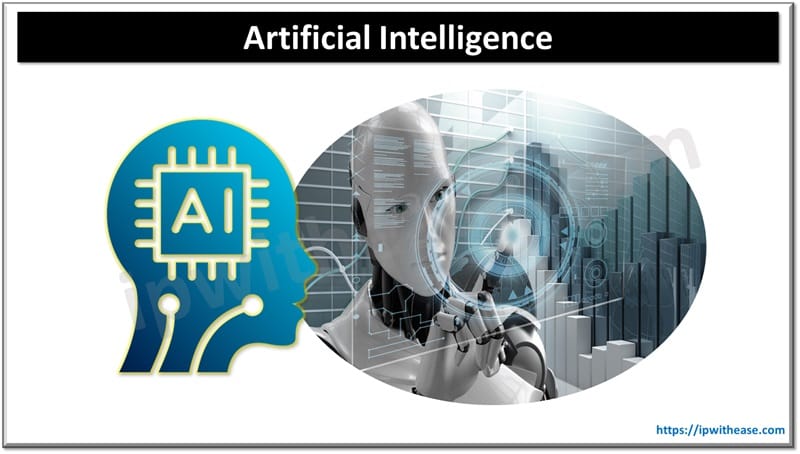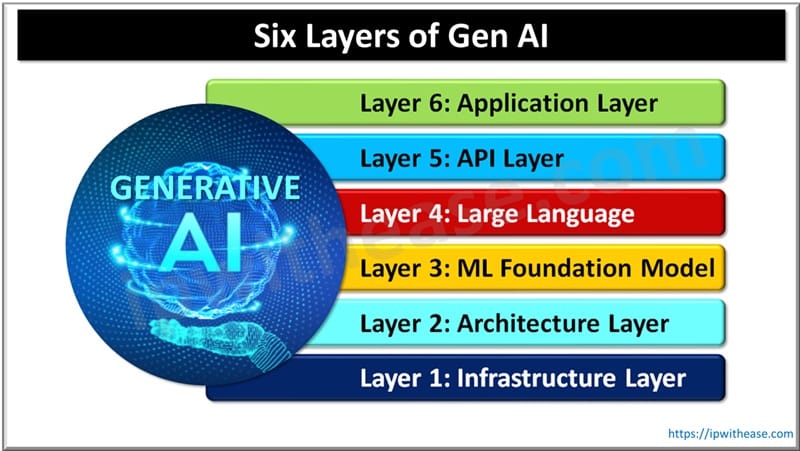Table of Contents
Understanding artificial intelligence (AI) may appear complex at a glance; however, breaking it into smaller parts can make it easier to grasp its concepts and applications in our modern world of technology and innovation. AI is an important aspect of today’s advancements that impacts everyone in different ways, whether through virtual helpers like chatbots or voice assistants, personalized recommendations on platforms, or automated tasks that simplify our daily routines. The goal of this piece is to shed light on the nature of AI in a way that’s easily understandable for all readers.

Exploring the Concept of Artificial Intelligence
Let’s begin by understanding what is artificial intelligence? Artificial intelligence pertains to machines imitating abilities such as learning and problem-solving by understanding language effectively. Through AI technology, computers can tackle tasks that generally demand intelligence across various applications, from basic rule-based systems to intricate neural networks.
Different Categories of Intelligence
Different kinds of AI exist with varying abilities. Narrow AI (or weak AI) concentrates on specific tasks and excels in those areas but lacks overall comprehension, unlike General AI (or strong AI), which has the capability to understand and execute any intellectual task that humans can do. Although General AI is still a concept rather than a reality at present, it serves as a major aspiration for many researchers.
Machine Learning as an Element in Technology
Artificial intelligence (AI), which includes machine learning as a component in its advancement process, is significantly important for its growth and evolution. This method requires algorithms to be trained on data to identify patterns by analyzing datasets, enabling machines to predict outcomes or make decisions autonomously without coding. Numerous AI applications are driven by machine learning technology, including tailored suggestions and voice recognition systems.
Deep Learning: A Leap Forward
Advanced deep learning integrated with the IT infrastructure includes networks with layers that mimic the structural complexity of the human brain, helping machines handle intricate data more accurately and efficiently in various fields, such as image and voice recognition technologies or language processing systems used in autonomous vehicles.
Practical Uses in the Real World
AI has made its mark on many areas of our lives today. In the healthcare field, for example, AI plays a role in helping doctors diagnose illnesses, interpret scans, and suggest treatment options. Financial organizations also rely on AI technology to identify fraud, assess risks, and carry out automated trading. Within the transportation sector, AI technology drives the development of vehicles, making travel safer and more efficient. Moreover, AI-powered virtual assistants, like those on our smartphones, aid us in managing our tasks and enhancing our user experiences.
Ethical Considerations
As artificial intelligence progresses further into the future, ethical dilemmas come to light. Topics like safeguarding data privacy, preventing bias, and addressing employment shifts require examination. It becomes crucial to uphold transparency and equity in AI frameworks to maintain public trust. Government officials, companies, and scholars should work together to tackle these obstacles and create responsible AI solutions.
The Upcoming Advancements in Artificial Intelligence
The potential for innovation and change in the field of AI is promising as researchers delve into developing effective AI systems. Explainable AI is becoming increasingly popular as it seeks to enhance the transparency of AI decision-making processes. Furthermore, the blending of AI with cutting-edge technologies like the Internet of Things (IoT) and quantum computing has the potential to transform various sectors.
Describing Artificial Intelligence to Various Groups
Adapting the way we talk about AI depending on the audience’s familiarity with the subject can make the concepts clearer when explaining AI to kids who might not know much about it yet, comparing it to teaching computers how to think like humans can spark their interest. For adults who aren’t very tech-savvy, showing them how AI is used in practical situations, like recommending songs or organizing emails, can help them see its importance more clearly.
Summary
Artificial intelligence, a transformative force, reshapes the world in unprecedented ways. By understanding its core principles, applications, and ethical implications, individuals can better appreciate its significance. AI continues to evolve, promising a future filled with exciting possibilities and challenges. Embracing this knowledge equips society to navigate an increasingly AI-driven world.
ABOUT THE AUTHOR
IPwithease is aimed at sharing knowledge across varied domains like Network, Security, Virtualization, Software, Wireless, etc.



